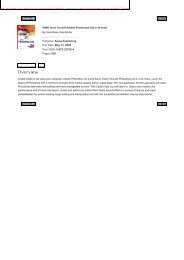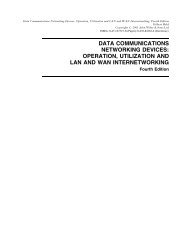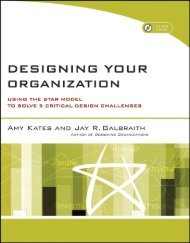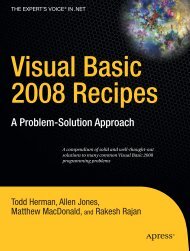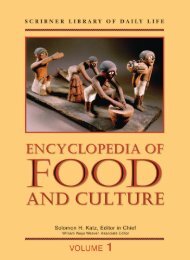The Economist December 1st 2007 - Online Public Access Catalog
The Economist December 1st 2007 - Online Public Access Catalog
The Economist December 1st 2007 - Online Public Access Catalog
- No tags were found...
You also want an ePaper? Increase the reach of your titles
YUMPU automatically turns print PDFs into web optimized ePapers that Google loves.
Drug-resistant infectionsRiding piggybackNov 29th <strong>2007</strong>From <strong>The</strong> <strong>Economist</strong> print editionFarm animals are infecting people with a new strain of superbugFILTHY surroundings that are home to a population fed on antibiotics provide the ideal breeding grounds for superbugs. But badly run hospitals arenot the only such places. Farms where animals are reared intensively also provide an incubator for drug-resistant diseases. Recent research suggeststhat veterinary surgeons and farmers in Europe and Canada may be picking up potentially fatal infections from pigs and possibly cattle.Superbugs evolve when common bacterial infections develop resistance to the drugs used to treat them. <strong>The</strong> most widespread cause of hospitalinfections, methicillin-resistant Staphylococcus aureus, or MRSA, is one such example. About a third of people carry some form of S. aureus on theirskin, where the bacteria do no harm. However, if they enter the bloodstream, they can cause disease. And if the resulting illness cannot be treatedbecause the bacteria are drug-resistant, the infection can prove fatal. MRSA killed some 19,000 people in America and 1,600 people in Britain in2005, the latest year for which figures are available.In the Netherlands such outbreaks are relatively rare. Yet a new strain called non-typable MRSA, or NT-MRSA, has recently emerged there. <strong>The</strong>strain first appeared in 2002 and now accounts for more than 20% of human infections. Unlike most other strains found in people, NT-MRSA stronglywithstands a group of drugs called tetracyclines, which are antibiotics that are heavily used in livestock. It seems highly likely that the medication offarm animals led to the evolution of the strain that has since been passed to people. Indeed, last year Albert de Neeling and Xander Huijsdens of theDutch National Institute for <strong>Public</strong> Health and the Environment, in Bilthoven, found NT-MRSA in 39% of pigs and at 81% of pig farms.Now Dr Huijsdens and Inge van Loo of the St Elisabeth Hospital in Tilburg have found further evidence to support this theory. <strong>The</strong>y compared 35people with NT-MRSA with 76 people carrying other strains of the superbug. Those who carried NT-MRSA were 12 times more likely to have comeinto contact with pigs and 20 times more likely to have come into contact with cattle. <strong>The</strong> pair plotted the infections on a map, and found that thedistribution of NT-MRSA cases coincided with the locations of pig and cattle farms. <strong>The</strong> results will be published in a future issue of EmergingInfectious Diseases.So far, it is not clear whether the strain is spreading beyond farms to cause infections elsewhere in the population. But Dr van Loo has detectedMRSA, including the new strain, in meat samples from Dutch supermarkets and butchers. <strong>The</strong> bacteria were present only at low levels that areunlikely to cause disease if food is properly cooked. Certainly, no one is yet known to have caught NT-MRSA from eating infected meat. Yet keepingthe bacteria out of the food chain would be a sensible idea. At least one outbreak of a different strain of MRSA has been traced to the eating ofcontaminated food by a hospital patient with a weakened immune system.Because the pigs are exported, the problem is spreading to other countries. NT-MRSA has already been detected in Denmark, France and Singapore.In a paper to be published in Veterinary Microbiology, Scott Weese from the University of Guelph in Ontario, Canada, found the strain in 25% of localpigs and, more worryingly, in 20% of pig farmers. Human cases of NT-MRSA are extremely rare in Canada but could become more common if theinfection spreads among the pig population.Moreover, the United States is the biggest importer of Canadian bacon, ham and pork. It is already experiencing a large increase in the number ofinfections caused by new strains of MRSA that are emerging from places other than hospitals and nursing homes. Such infections appear to be morevirulent and more easily spread between people than earlier strains. <strong>The</strong>y have even afflicted the fit and the young—who were not previouslythought to be susceptible to superbugs and the diseases they cause.Copyright © <strong>2007</strong> <strong>The</strong> <strong>Economist</strong> Newspaper and <strong>The</strong> <strong>Economist</strong> Group. All rights reserved.







